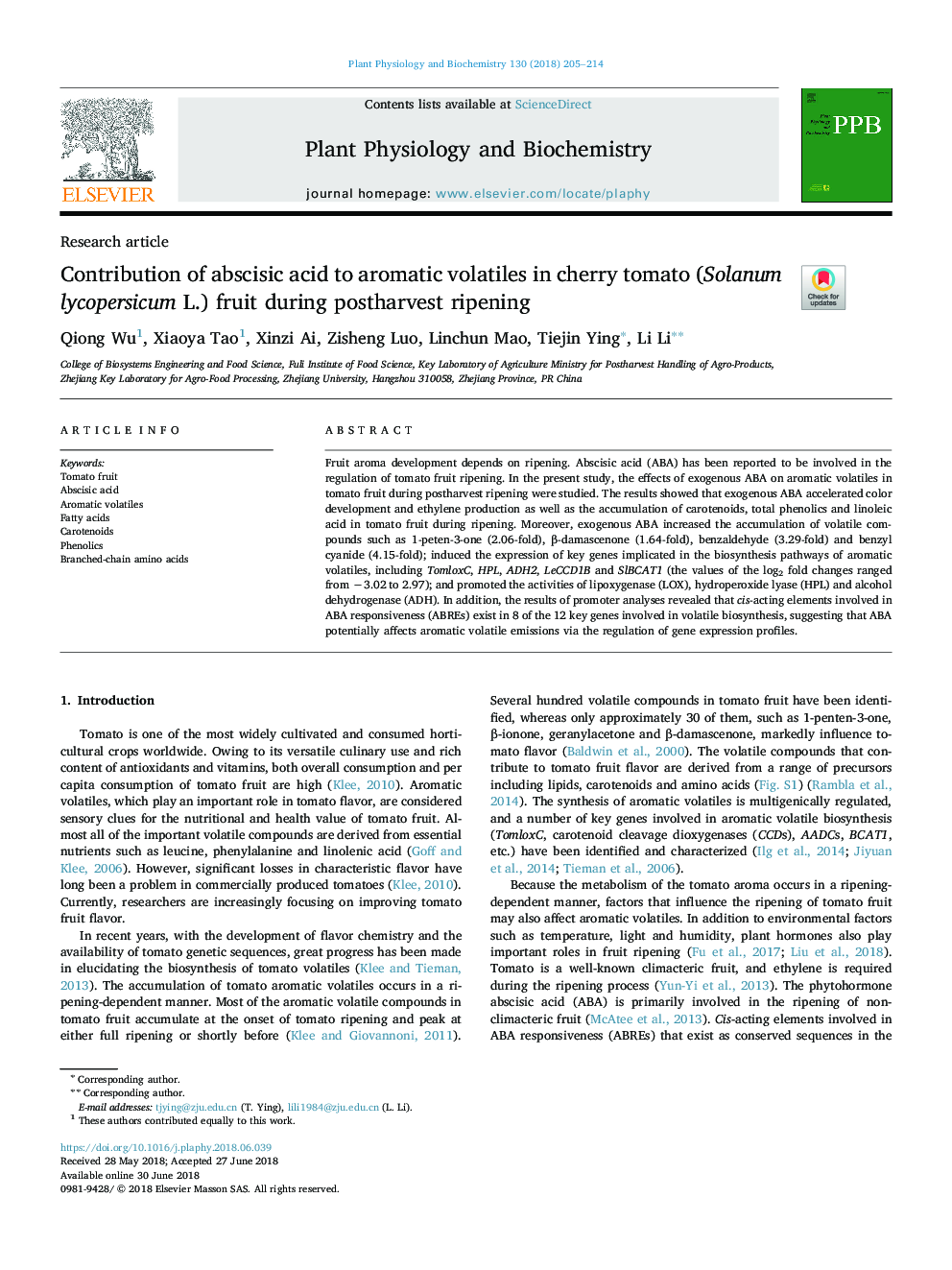| Article ID | Journal | Published Year | Pages | File Type |
|---|---|---|---|---|
| 8352449 | Plant Physiology and Biochemistry | 2018 | 10 Pages |
Abstract
Fruit aroma development depends on ripening. Abscisic acid (ABA) has been reported to be involved in the regulation of tomato fruit ripening. In the present study, the effects of exogenous ABA on aromatic volatiles in tomato fruit during postharvest ripening were studied. The results showed that exogenous ABA accelerated color development and ethylene production as well as the accumulation of carotenoids, total phenolics and linoleic acid in tomato fruit during ripening. Moreover, exogenous ABA increased the accumulation of volatile compounds such as 1-peten-3-one (2.06-fold), β-damascenone (1.64-fold), benzaldehyde (3.29-fold) and benzyl cyanide (4.15-fold); induced the expression of key genes implicated in the biosynthesis pathways of aromatic volatiles, including TomloxC, HPL, ADH2, LeCCD1B and SlBCAT1 (the values of the log2 fold changes ranged from â3.02 to 2.97); and promoted the activities of lipoxygenase (LOX), hydroperoxide lyase (HPL) and alcohol dehydrogenase (ADH). In addition, the results of promoter analyses revealed that cis-acting elements involved in ABA responsiveness (ABREs) exist in 8 of the 12 key genes involved in volatile biosynthesis, suggesting that ABA potentially affects aromatic volatile emissions via the regulation of gene expression profiles.
Related Topics
Life Sciences
Agricultural and Biological Sciences
Plant Science
Authors
Qiong Wu, Xiaoya Tao, Xinzi Ai, Zisheng Luo, Linchun Mao, Tiejin Ying, Li Li,
